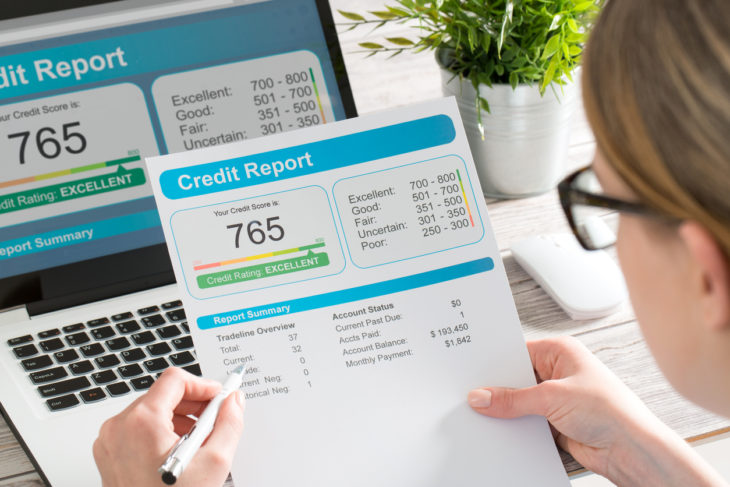Saving money isn’t all that hard. You can stop buying that morning coffee, reduce your internet speeds, and change a few things in your routine. That’s all easy stuff. Here we’ll be talking about advanced money-saving tips that either require more effort or insight into costs. Some of these may seem weird at first, but I promise that all of them can save you the right amount of money.
Contents
1. Get Healthy

Source: thestar
Let’s start with a weirder one first. Some of you might bemoan the thought of gym membership, taking time out of your day to exercise (time is money, right? Can I waste it at the gym?), and buying gym clothes. Yes, it takes time and effort, but getting healthy is one of the best ways to save money.
The vast majority of medical costs come late in life from diseases that are often easy to avoid if you stay healthy in your younger years. Not only that but working out is one of the best cures for mental illnesses like depression and anxiety. Another benefit is that your life insurance rates will be much lower, and your health insurance may be as well.
This takes some insight, but getting healthy is a wonderful way to save money while also improving your quality of life.
2. Cashback Apps

Source: thestreet
OrdinaryMoves.com, a popular cashback blog, says that Honey, Swagbucks, Rakuten, and Ibotta are the four leading apps that you should be using each time you make a purchase. These are incredibly simple apps that let you get money back whenever you buy items from a supporting merchant (like Amazon or most retail store websites).
Many people avoid cashback apps because they don’t see why they would get cash just for shopping. It makes sense once you understand where you’re getting the money from. All of these apps are using affiliate marketing, meaning they get a commission whenever you make a sale. They are simply splitting that commission with you, so you get money for buying everyday items.
Make sure you follow the app’s instructions so that all your purchases are properly counted towards your total.
3. Automate Savings

Source: newsday
This helps you save money in two ways. First, many people aren’t wired to put money into their savings account. You have the money in your checking account, do you need to move it? By automating your savings (often through your banking app), you will start building up your savings without any extra effort. Specify an amount, and the app will take care of the rest. Try to increase the amount whenever possible.
This also prevents you from spending money as frequently. What do you do when you see a lot of money in your checking account? You try to spend it, of course! There’s always something shiny to buy. However, savings accounts are a little harder to use, and this can prevent you from spending all that money on something else you don’t need.
4. Ask and Haggle

Source: acorns
Some people are excellent at this, but most people are going to have a hard time with this tip. Haggling and asking for a lower price won’t work every time, but it does work enough to make it worthwhile. Many people want to avoid the “embarrassment” of asking for a lower price, but why should you pay full price if you don’t have to?
Talk to a manager (or the direct seller at farmer’s markets or flea markets) and ask for a lower price. This also works with many services, like for the internet, cable, insurance, and more. Ask for a lower price. Sometimes you have to give a little (like a somewhat reduced service), but this can easily work out for you.
5. Improve Your Credit Score

Source: iStock
This is another insightful way to save money. Improving your credit score doesn’t just make you responsible and trustworthy to lenders; it can also save you thousands of dollars in interest. It’s a fact that people with high credit scores get lower interest rates on conventional loans (like car, house, and business loans), and they can often secure higher loan amounts as well.
Almost anything that involves an interest rate is dependent on your credit score. If you can improve your score, then you’ll save a tremendous amount of money on any loans you require.
6. Annual Maintenance

Source: maintainmyrv
When’s the last time you got a tune-up for your HVAC system or car? Most people wait until there’s a problem, and then they call the professionals. That’s when you have a massive bill that probably could have been avoided. This isn’t an exciting money-saving tip, but it’s a beneficial one.
Do annual maintenance on all your systems. Yes, the maintenance costs money, but it will often save you hundreds or thousands of dollars. Minor problems can be caught and fixed before they become catastrophic, and the system or car will usually last longer overall because it’s probably cared for.
7. Reduce Energy Costs

Source: thebalance
Many families face high electricity costs, especially if there are many people in the family. You can significantly reduce your costs by making some easy changes around the home. First of all, consider a smart thermostat. You can turn off the heat or cold when everyone is out of the house. This is often around 40-50% of your energy costs so that the savings will pile up. You’ll also want to improve your insulation and windows to regulate the temperature in your home better.
You’ll also want to get energy-efficient appliances, use smart power strips (they cut power to any connected device that is turned off), use a gas water heater, and switch to fluorescent bulbs. Its a lot of changes, but doing all this can dramatically reduce your power bills. Using an energy comparison website like ElectricityRates to find the best electricity rates will also come a long way in saving your electricity costs.
Conclusion
Saving money isn’t that hard, but sometimes it requires insight and the ability to look forward to high costs in the future. While it may not seem like much now, getting healthy, reducing your overall energy usage, and learning to haggle can significantly reduce your costs. Give these tips a try, and you’ll find out how useful they can be.
